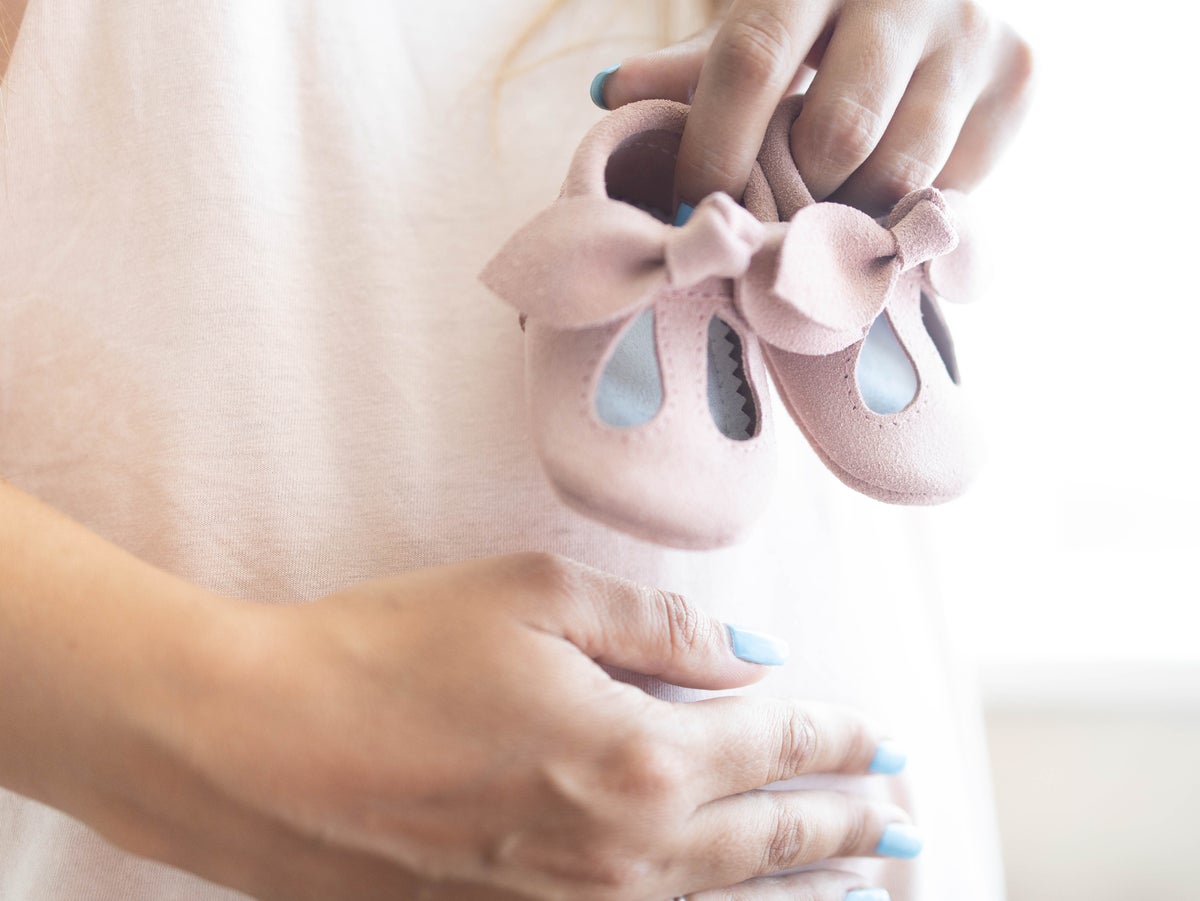
New plans from the government allowing pregnancy losses before 24 weeks to be “formally” recognised are a “welcome step”, but are “no way a substitute for official recording of miscarriage data”, charities have warned.
The change, which is outlined in the Women’s Health Strategy for England, published on Wednesday (19 July), will give parents the option to register an early pregnancy loss.
Under the current laws, parents whose babies are stillborn after 24 weeks of pregnancy are required to register the pregnancy loss. A certificate of registration of stillbirth is then issued to the parents.
Up until now, there has been no formal process of registration for parents who suffer a pregnancy loss before 24 weeks.
“Some bereaved parents find this to be distressing, although some parents may find it equally distressing if they were required to legally register the loss when they did not wish to do so,” the government wrote in the strategy.
It comes after interim findings from a Pregnancy Loss Review, commissioned in 2018, recommended the introduction of a voluntary scheme that will give parents the option to record their baby loss and receive a certificate of recognition.
The certificate is intended to “provide comfort and support by validating a loss”.
It will “not be a legal document but will be an important acknowledgement of a life lost”, the strategy said.
Ruth Bender Atik, national director of the Miscarriage Association, a charity which supports those affected by pregnancy loss, said: “We welcome this strategy and, in particular, the commitment to allow optional certification which we will know will be much appreciated by many people whose babies’ brief lives cannot be officially registered.”
The change will allow parents to register miscarriages, ectopic and molar pregnancies in England.
An ectopic pregnancy is when a fertilised egg implants and grows outside of the woman, most commonly in a fallopian tube. If this happens, the egg won’t develop into a baby and may cause health complications for the mother.
A molar pregnancy is when a sperm fertilises an “empty egg” – one which has none of the mother’s genetic material inside. As a result, a fetus does not develop.
It may also occur when two sperms fertilise one normal egg. This will also not develop into a baby.
Anna Malnutt from Derby, who has had three miscarriage, said a pregnancy loss certificate would have “made a huge difference” in her grieving process.
“To me, each of those losses was a baby as much as the child I was able to carry to term, and to have the option to have this recognised would have meant the world to me,” she said.
“I felt that my losses were seen as a physical medical issue for myself, and the lack of acknowledgement of what that meant for me was deeply hurtful.
“I believe these certificates would be a positive step in recognising the reality of the pain carried by all people processing the loss of a baby before 24 weeks.”
Pregnancy and baby loss charity Tommy’s has cautioned that the strategy does not solve crucial gaps in data surrounding micarriages and pregnancy loss.
This is vital because families must experience three miscarriages before they are offered testing for an underlying cause on the NHS.
Kath Abrahams, chief executive of Tommy’s commented: “It’s vital that we understand the true scale of miscarriage in the UK. Without robust data we cannot set meaningful targets for reducing the number of miscarriages or tell if the support being put in place to prevent loss is working.
“Pregnancy loss certificates are an optional process meant to provide vital emotional solace and acknowledgment for grieving parents. Although very important, they are in no way a substitute for official recording of miscarriage data by health services.”
The government has yet to announce when the certificates will become available.
For those affected by a pregnancy loss, the Misscarriage Association offers its own memorial certificates for anyone who might find them comforting.
If you have been affected by any of the issues raised in this article, you can contact stillbirth and neonatal death charity Sands on 0808 164 3332 or email helpline@sands.org.uk. The helpline is open from 9.30am to 5.30pm Monday to Friday, and until 9.30pm on Tuesday and Thursday evenings.
You can contact the Miscarriage Association helpline on 01924 200799 or email the charity at info@miscarriageassociation.org.uk. The helpline is open from 9am to 4pm Monday to Friday.
You can also find bereavement support at The Lullaby Trust by calling 0808 802 6868 or emailing support@lullabytrust.org.uk.
To contact Petals to enquire about the charity’s counselling services, you can call 0300 688 0068 or email counselling@petalscharity.org.




.png?w=600)


